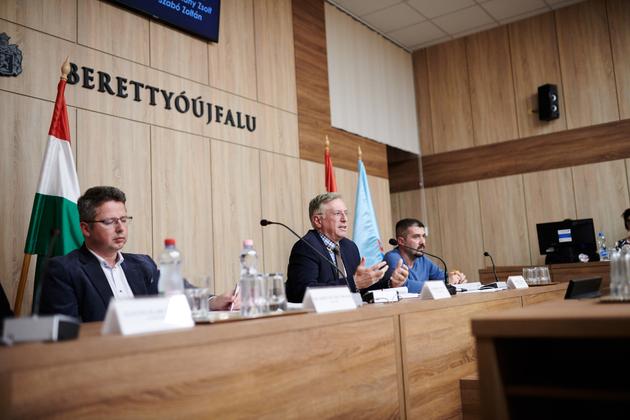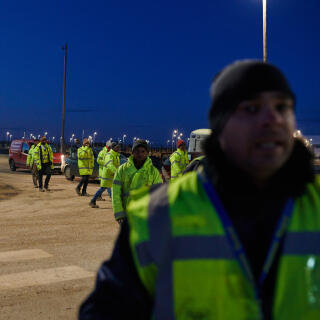On Wednesday, November 15, a few dozen residents huddled together in the small, overheated council chamber of Berettyóújfalu, a town of 14,000 inhabitants in eastern Hungary. The situation is serious, according to the mayor, István Muraközi, who called an urgent public meeting to discuss "the problem of the 150 Indian workers who turned up by surprise" in October in this typical rural Hungarian town, where immigrants, especially non-Europeans, have never been seen.
"That's already 1% of our population," said this 50-something with the look of a peaceful civil servant, with his checked shirt and tidy hair. Elected by Fidesz – the nationalist, anti-immigrant party of Prime Minister Viktor Orbán – he promised: "It wasn't the town hall that brought in" these young men. Housed in a dilapidated former boarding school and a drab vacation village located by a pond, they are employed on the site of the future BMW electric car factory, which is due to open in 2025 in Debrecen, Hungary's second-largest city, a 45-minute bus ride away.

"I have no problem with bringing in guest workers," said the mayor, who was careful not to criticize Orbán. After years of anti-immigration messages, Orbán has done something of a U-turn. Since 2022, the government has been letting in tens of thousands of Asian workers to fill the glaring labor shortage in his country, which is in full demographic decline and where unemployment is below 5%. "But I don't agree with having guest-worker hostels in our residential neighborhoods or next to our hospitals or schools," he said, deliberately using the government's terminology, which carefully avoids the word "immigrant" in favor of "guest."
You have 82.97% of this article left to read. The rest is for subscribers only.
